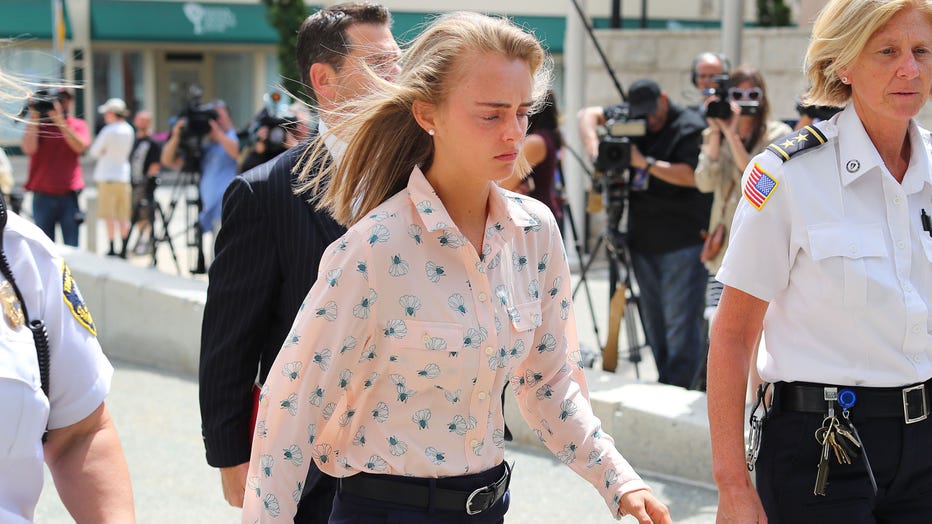Michelle Carter, convicted in texting suicide case, freed from jail
BOSTON - A woman convicted of manslaughter for urging her suicidal boyfriend to kill himself in text messages that included, "Just do it, babe," was released from jail Thursday.
Michelle Carter was released more than three months early from a county jail in Massachusetts, where she had been serving a 15-month sentence. The 23-year-old Plainville native accrued enough credits for good behavior and attending jail programs, according to officials. She now has to serve five years of probation.
Carter, wearing a white blazer and dark slacks, was spotted being driven out of the facility by her parents Thursday morning.
Her release comes after the U.S. Supreme Court declined last week to hear her lawyers' appeal of her involuntary manslaughter conviction in the 2014 death of her boyfriend, Conrad Roy III.
Carter's case garnered national attention as it raised thorny legal questions about free speech and provided a disturbing look at teenage relationships and depression. It also sparked legislative proposals in Massachusetts to criminalize suicide coercion.
A Massachusetts judge determined Carter, who was 17 at the time, caused the death of the 18-year-old Roy when she ordered him in a phone call to get back into his parked truck, which he'd rigged to fill up with deadly carbon monoxide.
The phone call wasn't recorded, but the judge relied on a text Carter sent her friend in which she said she told Roy to get back in. In text messages sent in the days leading up to Roy's death, Carter also encouraged him to follow through with his suicide plan and chastised him when he didn't.
Carter opted for a bench trial, an unusual legal strategy that meant a judge decided her fate rather than a jury. She also didn't testify in her defense at the trial.

Michelle Carter was convicted of manslaughter for urging her suicidal boyfriend to kill himself in 2014.
The state's highest court upheld Carter's conviction (https://apnews.com/abd449bd66274f698e9ff4d4c2247a8e) last February and she was ordered to begin serving her jail sentence. She was denied parole (https://apnews.com/a613baed5cf04e81a0c1c9fa61fdef19) in September.
“After she convinced him to get back into the carbon monoxide filled truck, she did absolutely nothing to help him: she did not call for help or tell him to get out of the truck as she listened to him choke and die,” Justice Scott Kafker wrote in the state Supreme Judicial Court's decision.
Carter and Roy both lived in Massachusetts but met in Florida in 2012 while both were on vacation with their families. Their relationship consisted mainly of texting and other electronic communications. Both teens struggled with depression, and Roy had made earlier suicide attempts.
Carter's lawyers argued in their Supreme Court appeal that the conviction should be thrown out because it was an “unprecedented” violation of their client's First Amendment rights that suggested “words alone” are enough to hold someone responsible for another person’s suicide.
RELATED: Woman who encouraged suicidal boyfriend to take his own life appeals to Supreme Court
The lawyers also argued there was simply not enough evidence to prove Carter urged Roy to get back in his truck to die, or that he would have lived if she had called for help or taken other actions to try and save his life.
A case strongly echoing Carter's, meanwhile, is playing out in a Boston court.
Prosecutors say former Boston College student Inyoung You drove her boyfriend Alexander Urtula to kill himself in a toxic relationship that included thousands of abusive text messages.
The 21-year-old has pleaded not guilty to involuntary manslaughter.

